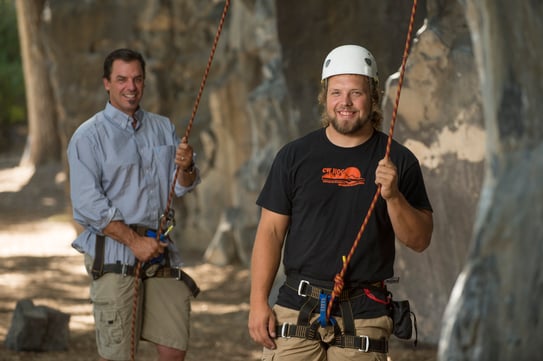
This weekend I had an accident while longboarding. I ended up falling off of my board and hitting my head on the asphalt. This left me unconscious for a few minutes which is very scary to experience. I’m no stranger to getting injured, but this time it made me think afterward. It could have been way worse than it was, but it was enough to scare me into an epiphany. You should always wear a helmet and I have very good reasons as to why. From personal experience, I can say that it is not worth putting your brain and spinal cord at risk just for a little bit of fun.
Recreational activities, whether they involve cycling, skateboarding, skiing, or rollerblading, offer an excellent way to stay active, have fun, and explore the great outdoors. While the excitement of these activities is undeniable, safety should always be a top priority. One essential safety measure that often gets overlooked is wearing a helmet. In this blog, we will explore the reasons why you should always wear a helmet for recreational activities.
Prevent Traumatic Brain Injuries
One of the most compelling reasons to wear a helmet during recreational activities is to protect your head from traumatic brain injuries (TBI). TBIs can result from falls, collisions, or accidents, and they can have life-altering consequences. A helmet acts as a crucial barrier between your head and potential hazards, reducing the risk of severe head injuries. It can absorb the impact force and distribute it over a larger surface area, lessening the blow to your skull and brain.
Reduce the Risk of Concussions
Concussions are a form of mild traumatic brain injury and can occur even without visible external injuries. They often result from sudden acceleration or deceleration of the head, causing the brain to move within the skull. Helmets help reduce the risk of concussions by providing a cushioning effect and stabilizing the head during impact.
Enhance Spinal Cord Safety
In addition to protecting your brain, helmets also contribute to the safety of your spinal cord. In accidents where a fall or collision results in impact to the head, the helmet can help to prevent or mitigate injury to the cervical spine, reducing the risk of paralysis or other serious spinal cord injuries.
Customize Your Style
Modern helmets come in a variety of styles, colors, and designs, making it easy to find one that matches your personality and complements your outfit. Whether you prefer a classic look or a helmet adorned with vibrant graphics, you can express your individuality while prioritizing safety.
When it comes to recreational activities, the phrase "safety first" couldn't be more relevant. Wearing a helmet is a small, yet critical, step to safeguard your head, brain, and spinal cord from devastating injuries. The benefits of wearing a helmet far outweigh any inconvenience, adding an extra layer of protection to your outdoor adventures.
Remember, safety is not a trend, but an enduring principle that should guide your choices during any recreational activity. So, before you embark on your next thrilling adventure, take the time to choose the right helmet and make it an indispensable part of your recreational gear. Your brain and overall well-being will thank you for it.

-1.png)
